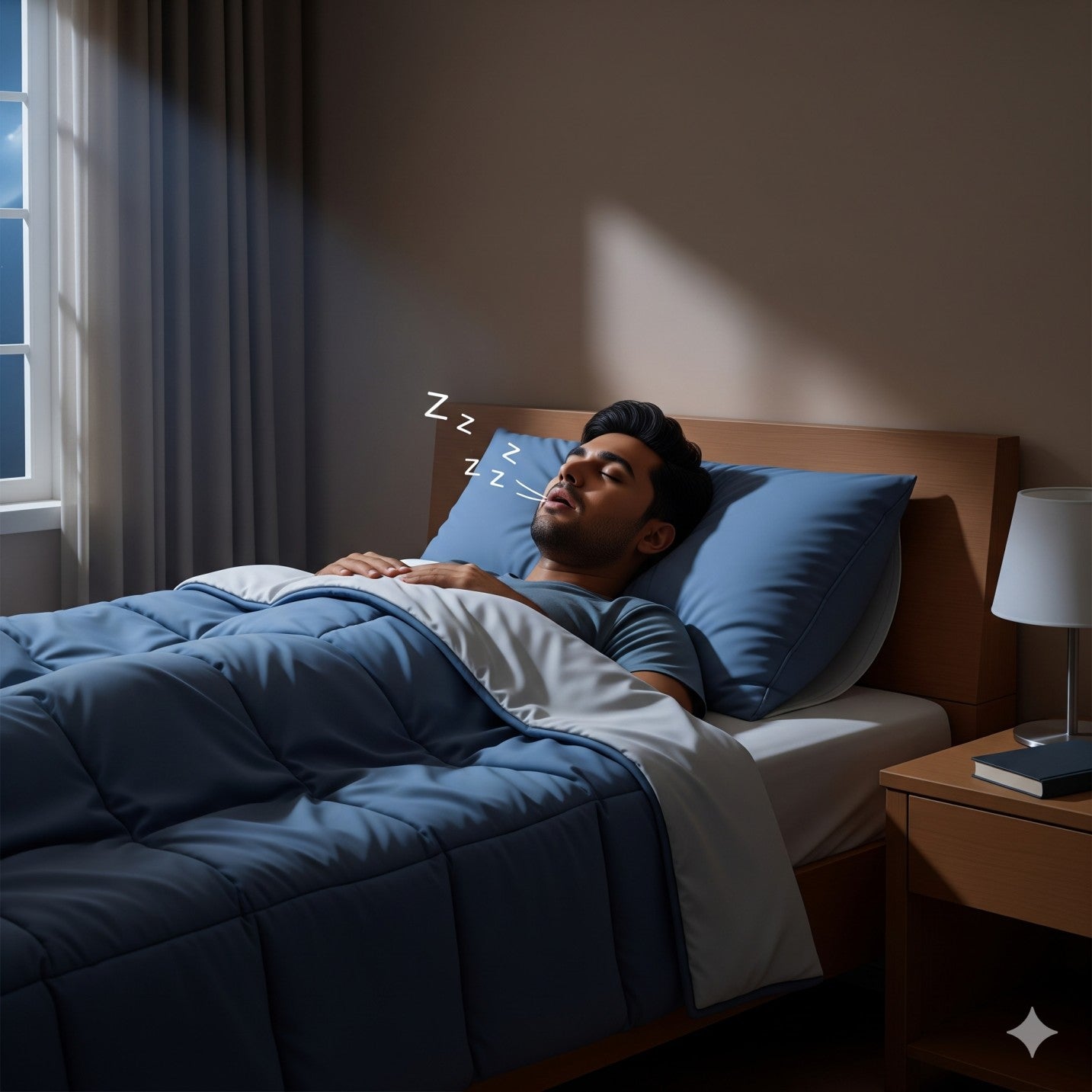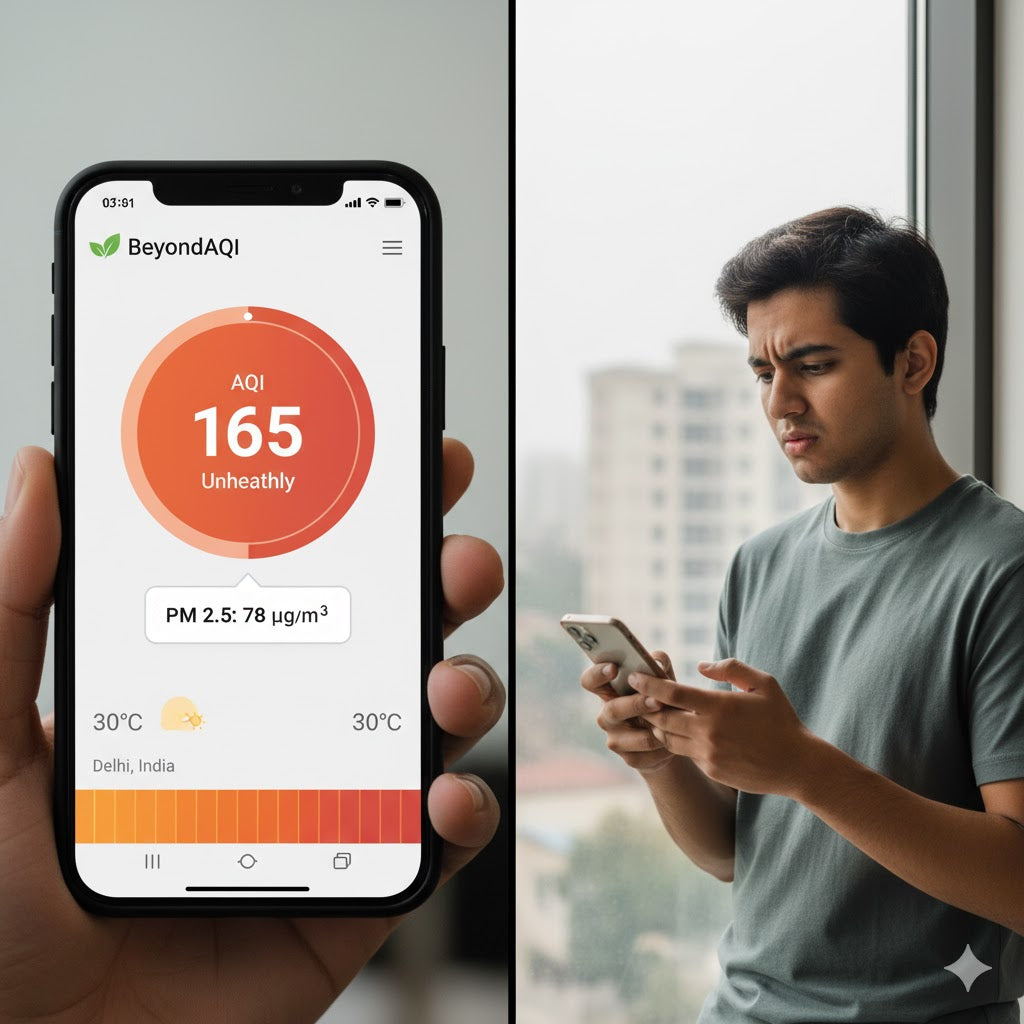Look, I'm going to be completely honest with you right from the start. If you're here because your snoring is driving everyone crazy – including yourself – you've probably already tried half the stuff people suggest online. Most of it doesn't work. But some of it? Complete game changers. And honestly? Learning how to stop snoring naturally might be easier than you think.
I've spent way too much time researching this because, frankly, the whole "sleeping on the couch" routine gets old fast. Here's what actually moves the needle when it comes to shutting up that nightly freight train.
1. Sleep On Your Side (But Here's Why Most People Mess This Up)

Everyone and their grandmother will tell you to sleep on your side. What they don't tell you is that most people do it wrong and give up after three miserable nights.
Here's the deal – when you're flat on your back, everything just... drops. Your tongue, that soft tissue at the back of your throat, all of it. It's like gravity is personally invested in making you sound like a broken lawnmower.
But here's where people mess up: they just flip to their side and wonder why they wake up on their back again at 3 AM. Your body doesn't care about your good intentions when you're unconscious.
The trick that actually works? Get yourself a body pillow. Not those decorative things – I'm talking about a real, substantial pillow that you can hug. Position it along your back and front. When you try to roll onto your back (and you will), the pillow stops you. When you try to roll to your stomach, same deal.
Takes about two weeks to stick, but once it does? Night and day difference. Literally.
2. Drop Some Weight (Yeah, I Know, You Don't Want to Hear It)
 This one annoys people because nobody wants to be told their snoring is because they're carrying extra pounds. But physics doesn't care about your feelings.
This one annoys people because nobody wants to be told their snoring is because they're carrying extra pounds. But physics doesn't care about your feelings.
Even 15 extra pounds around your neck area can squeeze your airway enough to turn you into a human chainsaw. It's not about looking good in a bathing suit – it's about basic airflow mechanics.
You don't need to go on some extreme diet or hire a personal trainer. I'm talking about simple stuff – maybe skip that bowl of cereal you eat while watching Netflix at 11 PM, or grab water instead of your usual afternoon Coke. Seems too easy to matter, right? But here's the weird thing: your airways feel every single pound that disappears from around your neck area, even when you can't see the difference yet.
The frustrating part? You might not see it in the mirror for weeks, but your sleep partner will notice the difference in your breathing within days. Bodies are weird like that.
3. Actually Stay Hydrated (Not Just When You Remember)

This sounds too simple to matter, but when you're dehydrated, everything in your throat gets sticky and gross. Think about what happens to honey when it sits out – that's basically what's happening to the mucus in your airways.
But here's the catch everyone misses: you can't just chug a bunch of water before bed and call it good. That just means you'll be stumbling to the bathroom every two hours. You need to actually stay hydrated throughout the day.
Here's an easy check – glance at your pee color. Sounds gross, but if it's darker than light yellow, you're not drinking enough water. And that morning dry mouth? That's not just because you sleep with your mouth open. It's your body's way of saying "hey, I've been working overtime all night trying to keep things flowing smoothly up here."
The sweet spot? Steady water intake during the day, then ease up about two hours before sleep. Your kidneys will thank you, and so will everyone within earshot of your bedroom.
4. Open Your Nose (Because Mouth Breathing is Loud Breathing)

When your nose is stuffed up, your mouth takes over. And mouth breathing during sleep? That's basically guaranteed snoring. Your mouth wasn't designed to be your primary breathing apparatus when you're horizontal.
Nasal strips work, but only if your problem is actually in your nose. If you've got deeper issues going on, they're like putting a band-aid on a broken pipe.
Saline rinses are even better if you can handle the weird sensation. Flushes out all the crud that builds up during the day – pollution, allergens, whatever else you've been breathing in urban air.
Pro tip: if you're constantly stuffy, look at what's in your bedroom. Dust on the fan blades? Old pillows full of dust mites? Sometimes the solution isn't about your nose – it's about cleaning up what you're breathing in.
5. Skip the Nightcap (Your Throat Muscles Need to Stay Alert)
This one stings because a lot of people use alcohol to wind down. But alcohol is basically a muscle relaxer, and the muscles in your throat are exactly what you need to stay somewhat firm during sleep.
Even one drink within three hours of bedtime can turn a quiet sleeper into a freight train. Your throat muscles just give up and everything collapses inward.
The timing matters more than the amount. A glass of wine with dinner at 6 PM? Probably fine. That same glass at 10 PM before bed? You're basically guaranteeing a noisy night.
Same goes for sleep aids and some allergy meds. They knock you out, but they also knock out your muscle tone. Check the labels – if it says "may cause drowsiness," it might also cause snoring.
6. Work Out Your Throat (Yes, That's Actually a Thing)
This sounds ridiculous until you think about it – every other muscle in your body gets stronger with exercise. Why would your throat be different?
Three exercises that actually work:
Stick your tongue out as far as possible, hold for 10 seconds, repeat 10 times. Do this while watching TV or whatever. Strengthens the muscles that keep your tongue from falling backward.
Say "ahhh" like you're at the doctor, but hold it for 20 seconds. Do this five times. Works the muscles in the back of your throat.
Press your tongue firmly against the roof of your mouth and slide it backward. 20 times, twice a day.
Feels silly, takes about three minutes total, actually works. Give it three weeks before you decide it's not helping.
7. Get Your Sleep Schedule Together (Exhausted People Snore More)

When you're dead tired, your muscles relax more than they should. Including the ones that are supposed to keep your airway open.
Consistent bedtime and wake time – even on weekends. Your body thrives on routine, and well-rested muscles are stronger muscles.
But here's what most people don't consider: your sleep environment affects how deeply your muscles relax. Too warm? You'll sleep more restlessly and snore more. Too many interruptions from light or noise? Same problem.
Blackout curtains, white noise machine, cool temperature. Basic stuff that makes a real difference in sleep quality. Better sleep quality usually means less snoring.
Quick Fixes That Actually Help
Humidifier in the bedroom – dry air irritates everything and makes snoring worse. Especially important if you run the heat or AC all night.
Elevate your head slightly – not with a bunch of pillows that hurt your neck, but by putting blocks under the head of your mattress. Just a few inches makes gravity work for you instead of against you.
Replace old pillows – if your pillow is flat or lumpy, it's putting your neck in a weird position that can partially block your airway.
When You Need to Stop Trying DIY Solutions and See a Doctor
Look, I get it – nobody wants to admit their snoring might be more than just a minor annoyance. But there's a difference between "I sound like a freight train" and "my body is actually fighting for oxygen all night." Don't be that person who's too proud or too scared to get help when you actually need it.
Here's when you need to swallow your pride and make that appointment: If you're waking up gasping or choking – that's not normal snoring, that's your body hitting the panic button. If you're sleeping 8+ hours but still dragging yourself through the day like you got hit by a truck. If you're getting morning headaches that feel like someone's squeezing your skull.
And if your partner is telling you that you actually stop breathing during the night? Listen to them. They're not making it up to be dramatic.
This could be sleep apnea, and here's the thing about sleep apnea – it doesn't care about your tongue exercises or your perfect sleep hygiene. It's a mechanical problem that needs actual medical intervention. The good news? It's totally fixable with the right treatment.
Don't waste months trying to DIY this if: you've been consistent with natural approaches for six solid weeks and you're still sounding like a construction site. Or if things are actually getting worse instead of better – that's your cue that something else is going on.
Yeah, seeing a doctor is a hassle. But you know what's a bigger hassle? Slowly destroying your health because you were too stubborn to get help when you needed it.
Bottom Line: Start With What You Can Control
Don't try to fix everything at once – that's a recipe for giving up after a week. Pick two things from this list that seem most relevant to your situation and stick with them for at least a month.
Side sleeping plus throat exercises? Great combo. Weight loss plus staying hydrated? Also solid. Nasal strips plus skipping the nightcap? Worth trying.
The goal isn't perfection – it's progress. Even cutting your snoring in half makes a massive difference for everyone's sleep quality.






Share:
Nasal Dilator vs. Nasal Strips: What's Right for You?
The Complete Guide to Nasal Strips: Better Sleep, Stronger Breathing, and Healthier Living